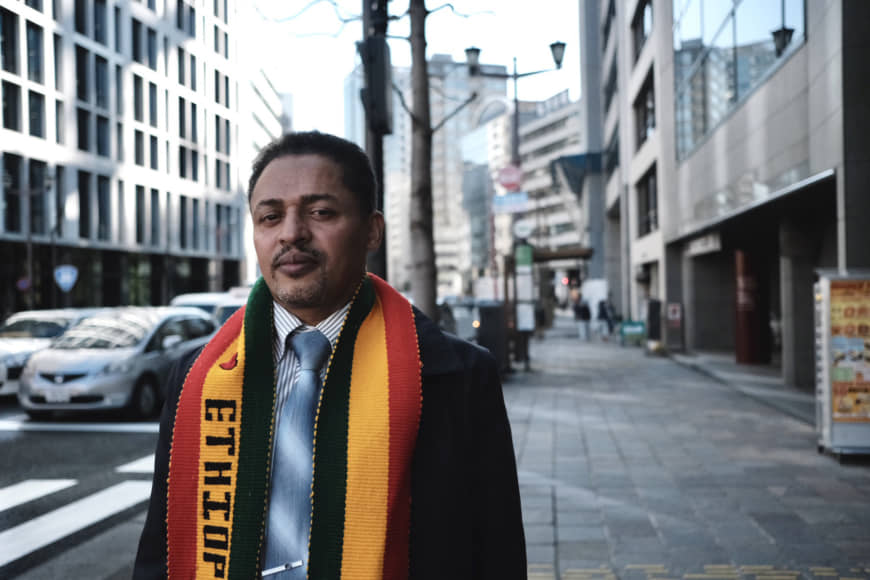In her latest piece for The Japan Times, current Luce Scholar Jesse Chase-Lubitz (2019-20) describes the contrast between the welcoming reception shown by local communities and aid organizations toward refugees compared to the Japanese government’s tightening policies on asylum seekers.
Hilmneh Tegegn walks into Little Ethiopia Restaurant & Bar in Katsushika Ward, Tokyo, and points to a television playing Ethiopian music videos in the back corner.
“That dance with the shoulders,” Tegegn says, gesturing to the TV screen. “It’s really challenging.”
The restaurant is strung with flashing red, green and blue lights, and the beer taps are capped with mini Santa hats in honor of Ethiopian Christmas, which is celebrated on Jan. 7 rather than Dec. 25. The restaurant is festive and warm, welcoming its diners as family rather than customers.
Tegegn, 49, greets a friend sitting at a table doing work on his iPad before turning around and yelling something in Amharic to the owners in the back. A young girl hurries out and peeks over a swinging wooden door. Tegegn speaks to her in Japanese.
“She understands everything her parents say to her in Amharic, but she only speaks Japanese,” he says.
This little oasis of Ethiopian culture sits in the neighborhood of Yotsugi, which is known around these parts as Little Ethiopia. Tegegn has known the family that owns the restaurant for years. He goes to church services with them, spends time with their kids and brings new customers to their bar.
The family who owns Little Ethiopia Restaurant & Bar had enough money to apply for a business visa, allowing them to open up their restaurant despite the fact that they haven’t been officially accepted as refugees in the country. While they’ve been able to build a life in Japan, Tegegn’s stay has felt more temporary. He left Ethiopia for Japan 11 years ago, when his wife was pregnant with their third child. Eleven years later, he has still not received refugee status and he has still not met his daughter.







